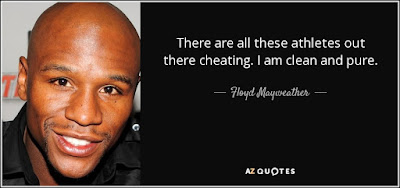150 Years of MLB
"Sesquicentennial" is the word for an anniversary of 150 years; it's worth knowing and celebrating. In the United States, not much reaches this milestone. I have to wonder, will the NFL have Super Bowl CL? Football fans know we are only at LIII. However, today, every club will sport MLB 150 patches on their caps. This is the first time a league-wide anniversary will be commemorated on something other than a sleeve. In fact, all clubs will wear special "MLB 150" patches on their uniforms for the entire 2019 season. The Reds will wear their own as this anniversary commemorates the 1869 Cincinnati Red Stockings—the first openly all-salaried professional baseball team.
David Adler of MLB writes "In addition to the league-wide patches, the Reds will also wear a series of 15 throwback uniforms throughout the season and feature a special commemorative logo on their caps and jerseys. MLB also announced on Tuesday that Manfred will be the grand marshal of the 100th Findlay Market Opening Day Parade in Cincinnati." Play Ball!
Every team plays today
Every club in the National League: East, Central or West as well as the American League: East, Central and West will take the field today. Maybe you are thinking: there is snow on the ground—baseball is starting? Yes. MLB reports that "the 2019 season will mark the second season under the scheduling format agreed to as part of the 2017-2021 Basic Agreement between MLB and the Major League Baseball Players Association (MLBPA). The format, which extends the length of the season by adding an additional weekend of play at the beginning of the season, gives each Club three to four additional off days throughout the season to provide added rest and opportunities for rescheduling."
I have waxed poetic about what is or is not Opening Day, before. It can be confusing. For example, the Oakland A's and Seattle Mariners played a two-game series in Tokyo. Therefore, the Mariners enter into Opening Day 2019 with a record of 2-0. Regardless, of that "soft opening" the designation of an official day by MLB as Opening Day 2019 with worth celebrating....even if just for the opportunity to check in and wish my fellow baseball fans a happy Opening Day.
I have waxed poetic about what is or is not Opening Day, before. It can be confusing. For example, the Oakland A's and Seattle Mariners played a two-game series in Tokyo. Therefore, the Mariners enter into Opening Day 2019 with a record of 2-0. Regardless, of that "soft opening" the designation of an official day by MLB as Opening Day 2019 with worth celebrating....even if just for the opportunity to check in and wish my fellow baseball fans a happy Opening Day.
Bunting
I know that Opening Day has some outstanding and meaningful traditions. The ceremonial first pitch, the parents who take their kids out of school for an "unexcused absence," the parade of legends who return to the yard and are honored on the field. Indeed, this panoply of rituals characterize our collective memories of Opening Day past and present!
I know that Opening Day has some outstanding and meaningful traditions. The ceremonial first pitch, the parents who take their kids out of school for an "unexcused absence," the parade of legends who return to the yard and are honored on the field. Indeed, this panoply of rituals characterize our collective memories of Opening Day past and present!
However, I still get the greatest thrill from something so simple. It's red, it's white and it's blue. It's doesn't have a song written in its honor for it isn't Star Spangled and although it sometimes can look faded, this take on Old Glory is ever fresh and new on Opening Day. Bunting.
Bunting adorns the outside and the inside of every Major League Ballpark for Opening Day. You will see it on display with a modern twist beneath the Opening Day 2019 logo. The tradition must go back to the earliest of Opening Days as it has the look of yesteryear, and I just love it. I can imagine Teddy Roosevelt cheering for his team, his monocle in place....the bunting in the background.
No Room for Pessimism
We say that "hope spring eternal," but the full quote ought to be shared. Alexander Pope said "hope springs eternal in the human breast: Man never is, but always to be blest." The second half of this message is important to remember. Negativity, reality, and that writing on the wall make it hard to have and hold hope. But as Pope reminds us, we are blessed. We are blessed to have opportunities to start anew. We are blessed to have traditions to honor and reasons to celebrate. We are blessed to have sport—a chance for humanity to play and compete, to strive, learn, grow, and achieve our goals.
San Francisco Giants fans struggled this morning to muster much excitement for the 2019 season. I wanted no part of that. We have A LOT of baseball—162 games to play! Trades to make. Balls to catch, hit, and land into the Bay. I know that tonight, I'll look for the box scores as well as the highlights with a keen eye on the MLB 150 patches and bunting in the background and raise a glass to this American past time, 150 years in the making.
San Francisco Giants fans struggled this morning to muster much excitement for the 2019 season. I wanted no part of that. We have A LOT of baseball—162 games to play! Trades to make. Balls to catch, hit, and land into the Bay. I know that tonight, I'll look for the box scores as well as the highlights with a keen eye on the MLB 150 patches and bunting in the background and raise a glass to this American past time, 150 years in the making.






















